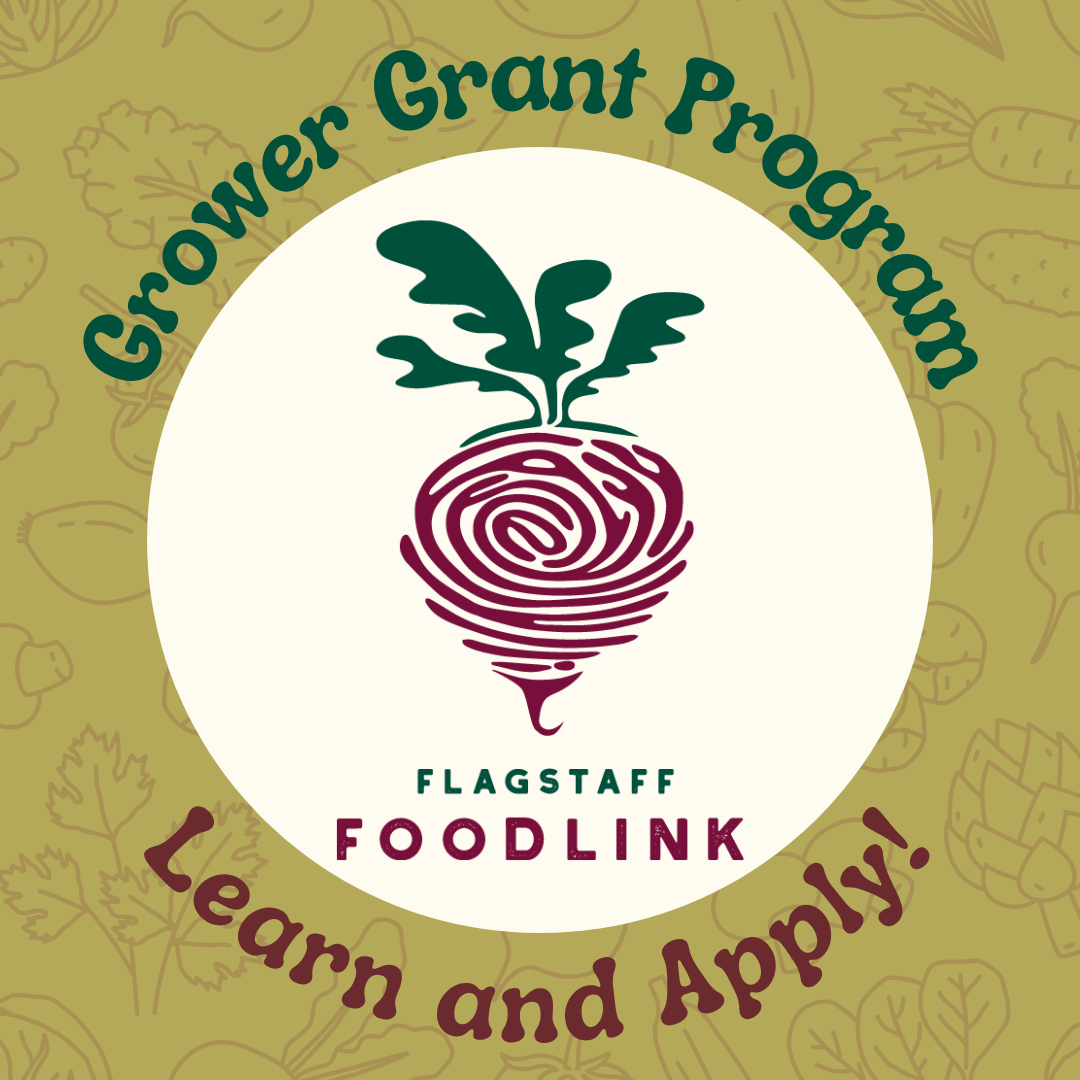MARKET GROWER GRANT
Each year, Flagstaff Foodlink supports local farmers in expanding and enhancing their operations through the Grower Grant Program. We created the Grower Grant Program to fill gaps that we see in traditional funding sources for small-scale food producers. If you are interested in learning more about this unique funding opportunity, please review the information below:
To learn about past recipients, read our Grower Grants Report.
For reference, take a look at this Grower Grant Example Application.
Grant proposals for the 2026 cycle will open December 15th, 2025 -February 15th, 2026 at 11:59pm MST. Applicants will be informed by mid-March 2026. If you have any questions about your eligibility or the grant itself, please email us at grow@flagstafffoodlink.com
Who can apply?
Applicants must be either 1) small-scale food producers who plan to market/trade their produce to the wider public (e.g. farmers, ranchers, herders, wildcrafters/gatherers), or 2) initiatives working with local food growers to expand food production (e.g. small seed companies, co-op kitchens, butchers, etc.). Applicants should be located in Coconino County or Navajo County and projects must fall within the scope of the Grower Grant Program.
We continue striving to better support local Indigenous food producers and non-Indigenous growers in the region. Flagstaff is located at the base of the San Francisco Peaks, a place held sacred by thirteen Native nations in the region. We live, work, eat, and grow food on Indigenous land. Indigenous food production and food sovereignty are vital parts of a just and resilient regional food system.
Grantees that have received funding for two consecutive grant cycles will be ineligible to apply the following year and will be invited to participate in grant review.
What types of projects qualify?
High priorities include food-related projects that help increase or enhance:
local skills, knowledge, and capacity
the production and availability of locally produced foods (especially artisanal, wildcrafted, heirloom, high desert or sustainably produced)
the demand for locally-produced foods
regional and cultural food traditions
Please contact us directly before you fill out a complete application if you want to find out if an idea might fit.
For home gardeners and education-focused school projects, the Coconino Master Gardener Association’s Garden Grants and the City of Flagstaff Neighborhood Sustainability Grants may be better funding sources for your project.
What are some specific examples?
See our Grower Grant Example Application.
Funding to enhance your farm or operation that enhances sustainability, such as projects to address water, energy efficiency, transition to certified naturally grown, organic, or biodynamic (including initial certification costs), or invest in equipment or supplies that will enhance your operation and opportunities.
Funding to support agricultural biodiversity, including the purchase of seeds and equipment related to producing a crop or breed of livestock, especially if it is:
an open-pollinated/heirloom variety,
a food important to the cultural traditions of native or immigrant communities on the Colorado Plateau, or
a local food crop or tradition at risk.
on the American Livestock Breeds Conservancy watch list
While we must be careful stewards of our limited funding, we don’t mean for this to be a burdensome process. If you have any questions or need help, contact us at grow@flagstafffoodlink.com
When are applications due?
At this point, grants are awarded once a year. A selection committee will then review applications. The Flagstaff Foodlink Board of Directors votes on final grant decisions after considering the committee recommendations. Applicants will be notified by late winter (expected around February).
How much funding can I request?
The maximum grant request is being determined for the 2026 year, though previous grants have been $500-$1,000. We strongly encourage you to seek matching funds from other private, government and/or foundation sources. This grant can be used as a match, too. The grants are competitive and due to funding constraints, we can only support a few of the many worthy projects that are submitted.
How will proposals be evaluated?
The Flagstaff Foodlink Board will score each proposal with a weighted matrix that considers the perceived effectiveness of the approach (5 points), the capacity for impacting the local food system (5 points), and the transferability of the project to other growers in the region (5 points).
Meet the 2025 Grower Grant Awardees!
Forestdale Farm
Four Paws Micro Farm LLC
Elevated Gardening
Double D’s Bees
Honey Creek Farm LLC
Gro-H
Lily of the Field
Cameron Farm Enterprise
COMING SOON (2026): COMMUNITY GROWER GRANT PROGRAM: A new small grant program intended to support community grower (non-market) projects and promote education and information sharing. This grant program is meant to be complimentary to our existing Market Grower Grant program yet autonomous in its award cycle. Any proposals received in Market Grower Grant applications that do not fit those criteria can be referred to the Community Grower Grant Program.


